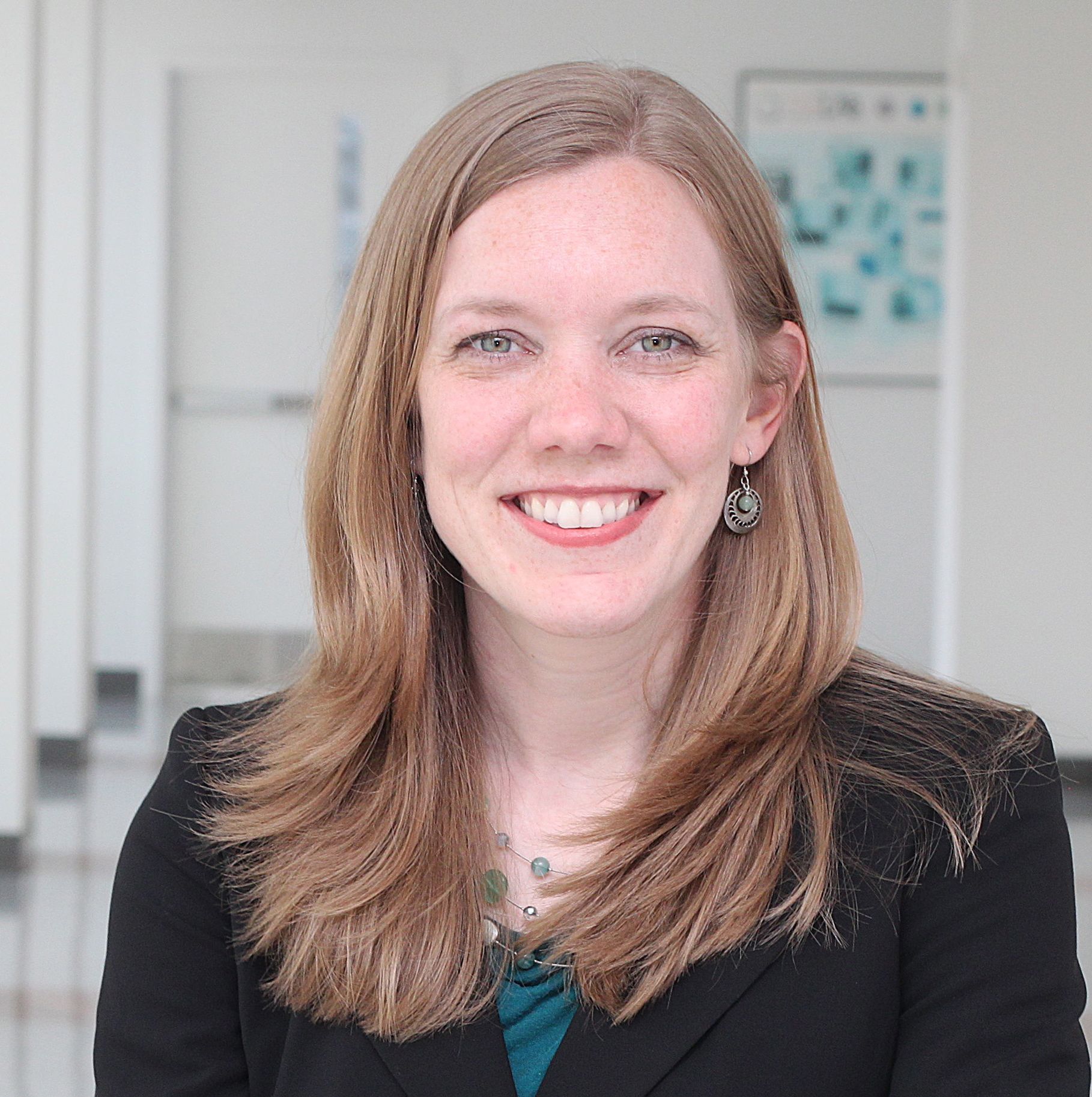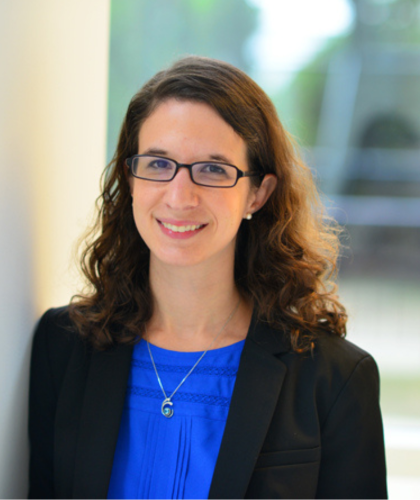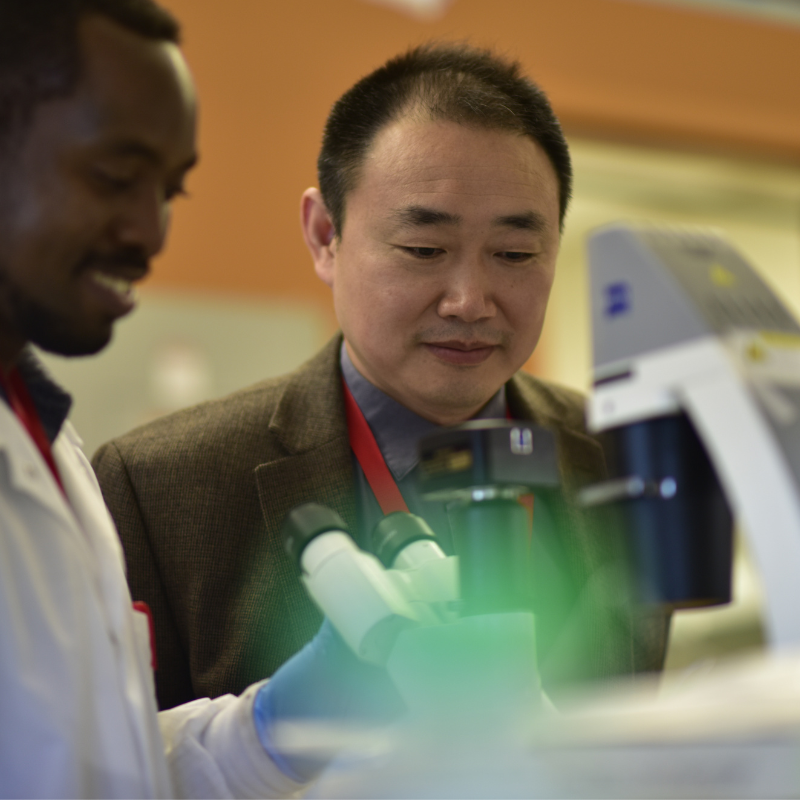Stroka Appointed Associate Chair for Undergraduate Studies and Director of Undergraduate Programs
October 10, 2025
Kimberly Stroka, Associate Professor in the Fischell Department of Bioengineering (BIOE), has been appointed Associate Chair for Undergraduate Studies and Director of Undergraduate Programs. Stroka was among the department’s first Ph.D. students when it was established in 2006, giving her a long-term perspective on the department’s growth and development.
“I am most excited to help continue the strong trajectory of this department through the education and training of our undergraduate students,” Stroka says. “This position allows me to play a larger role in shaping the education and experiences of our students as they build a rigorous foundation in engineering principles, critical thinking, teamwork, and ethical responsibility. Ultimately, it is the students who excite me the most.”
In her new role, Stroka aims to continue evolving the undergraduate program while fostering a stronger sense of community among students. Drawing from her own undergraduate experience as a physics major in a small program with a cohort of only eight students, she recognizes the importance of close connections among peers. She hopes to bring that same sense of belonging to BIOE by creating an environment where students are eager to learn, share ideas, and collaborate on challenging biomedical problems.
“Loving to learn is the first step,” Stroka says. “Recognizing the need for continued learning through life is the next step. Our students gain valuable skills and knowledge through their courses, research, and design projects, but they also need to be able to adapt, anticipate challenges, and continue innovating.”
“I am most excited to help continue the strong trajectory of this department through the education and training of our undergraduate students. This position allows me to play a larger role in shaping the education and experiences of our students as they build a rigorous foundation in engineering principles, critical thinking, teamwork, and ethical responsibility. Ultimately, it is the students who excite me the most."
-Kimberly Stroka
Stroka’s approach to teaching has evolved through years of experience in the classroom. During the COVID-19 pandemic, she received a Teaching Innovation Grant from the Provost’s Office to redesign her Biomechanics course into a flipped format that encourages active learning. Instead of relying on traditional lectures, she recorded instructional whiteboard-style videos and created interactive exercises, allowing students to review foundational material before class. Class time was then used for problem-solving, analysis, and discussion.
She also redesigned her Stem Cell Engineering course to function in a hybrid format, with students participating both in person and online synchronously. She taught this course in hybrid format for two semesters while the rest of the university was mostly virtual. The experience led her to explore new methods for engaging students and creating inclusive discussions across delivery formats. Surveys from the course showed that students achieved comparable learning outcomes in both environments. Stroka sees this as evidence that hybrid instruction could be used strategically to expand partnerships and educational access with sister institutions in the future.
As she steps into her new leadership role, Stroka is also mindful of the changing technological landscape that BIOE students will enter. She identifies the use of artificial intelligence as both an opportunity and a challenge. Students, she says, will need to understand how to use AI effectively in solving biomedical problems while maintaining ethical standards and avoiding overreliance on automated tools.
Her contributions to teaching and mentorship have been recognized across campus and beyond. Stroka has received the E. Robert Kent Teaching Award for Junior Faculty (2020), the Winston Honors Faculty Award (2022), the Philip Merrill Presidential Scholars Faculty Mentor Award (2020), and the BIOE Faculty Teaching Award (2018 and 2019). She is also a recipient of the NSF CAREER Award (2019–2025), which includes education and outreach initiatives. In addition to her teaching and leadership roles within BIOE, Stroka serves as a co-principal investigator on the National Institutes of Health Maximizing Access to Research Careers (MARC) training grant, which supports students in overcoming barriers to gain hands-on research experience and preparing for careers in STEM.
Through her leadership, Stroka aims to continue strengthening BIOE’s undergraduate programs by promoting collaboration, innovation in teaching, and a culture of lifelong learning that prepares students to lead in the field of bioengineering.









